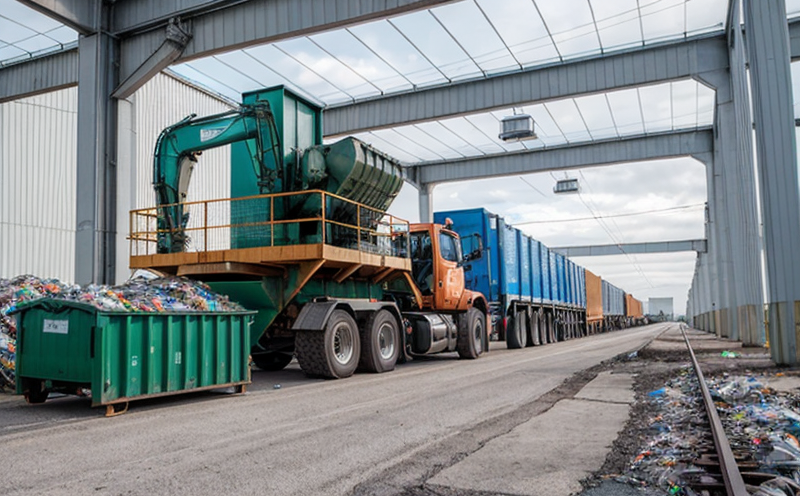ISO 22687 End of Life Tire Recycling Testing
The ISO 22687 standard is a pivotal guideline in the industrial recycling sector aimed at ensuring that end-of-life tires (ELTs) are processed and recycled sustainably. This service focuses on providing robust, accurate testing to meet stringent requirements for ELT recycling processes as outlined by this international standard.
ISO 22687 emphasizes the importance of minimizing environmental impact while maximizing resource recovery from used tires. It addresses key aspects such as the chemical composition analysis, mechanical properties evaluation, and durability assessment of recycled materials derived from end-of-life tires. This service ensures that manufacturers adhere to these standards, thereby contributing positively to both industrial manufacturing processes and broader circular economy goals.
Our laboratory employs state-of-the-art analytical tools and methodologies to deliver precise results compliant with ISO 22687 guidelines. From sample preparation through final analysis, our team meticulously adheres to prescribed protocols to ensure accurate assessment of recycled materials derived from ELTs. This includes thorough examination of mechanical properties like tensile strength, flexural modulus, and impact resistance, alongside detailed chemical analyses focusing on heavy metals content and residual carbon content.
The implications of this testing extend far beyond compliance; it enables informed decision-making regarding material selection for new product development within the industrial sector. By ensuring that recycled materials meet rigorous quality standards set forth by ISO 22687, manufacturers can enhance their reputation for sustainability without compromising performance or safety standards.
Our commitment to excellence in this area has earned us recognition as a trusted partner for leading companies across various industries who seek reliable testing services related to ELT recycling. With years of experience and cutting-edge facilities at our disposal, we offer comprehensive solutions tailored specifically towards meeting the needs of those involved in industrial manufacturing and processing.
To summarize, ISO 22687 End of Life Tire Recycling Testing plays a crucial role in promoting sustainable practices within the industrial sector by fostering responsible utilization of waste materials. Through precise testing methods aligned with international standards, we help our clients achieve regulatory compliance while advancing environmental stewardship initiatives.
Scope and Methodology
| Test Parameters | Description |
|---|---|
| Tensile Strength | Measurements are conducted according to ISO 528-1 for rubber specimens. |
| Flexural Modulus | Determined using ASTM D790 methods applicable to thermoplastics. |
| Impact Resistance | Evaluations follow ASTM D1693 procedures involving notched samples. |
| Heavy Metals Content | Analyzed via ICP-MS per EN 14504 guidelines. |
| Residual Carbon Content | Determined by carbon balance calculations based on ISO 22687. |
Quality and Reliability Assurance
- Use of certified reference materials for calibration purposes.
- Regular participation in proficiency testing programs recognized globally.
- Incorporation of advanced software solutions to automate data processing and reporting.
- Continuous training of staff on latest industry practices and emerging technologies.
Environmental and Sustainability Contributions
The implementation of ISO 22687 standards through our testing services contributes significantly to environmental protection efforts by reducing waste sent to landfills. By promoting the recovery of valuable resources from discarded tires, we support circular economy principles that prioritize resource efficiency and environmental responsibility.
Our approach not only helps clients comply with legal requirements but also encourages innovation in sustainable materials science. Through rigorous testing, we enable manufacturers to identify potential improvements in recycled product performance while minimizing adverse impacts on ecosystems.
In conclusion, adherence to ISO 22687 standards through our comprehensive testing services represents a significant step towards fostering a more sustainable future within the industrial manufacturing and processing sectors.





